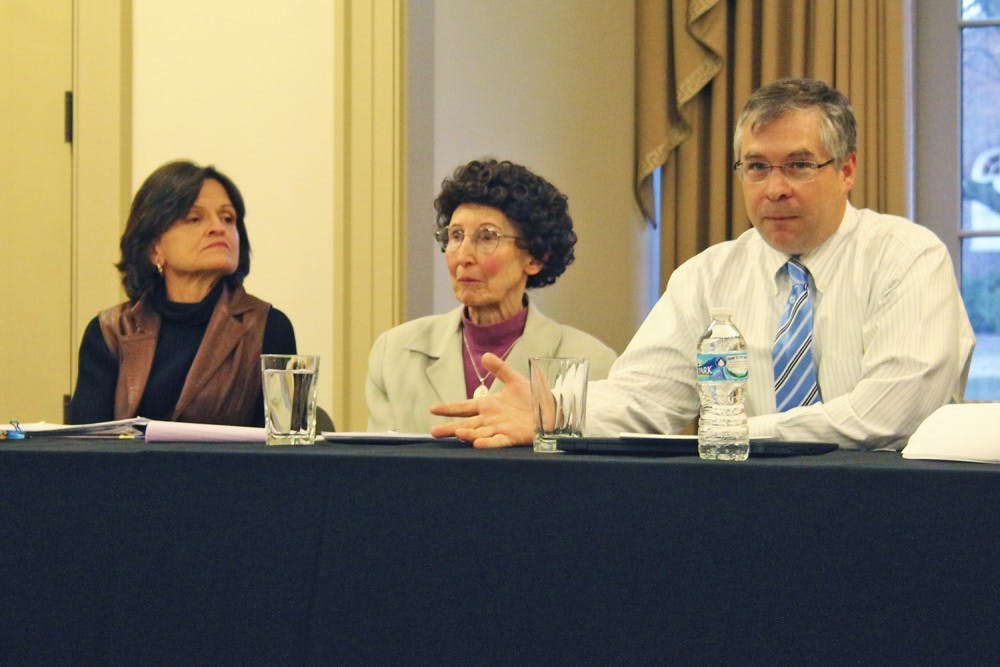On Monday, a passionate contingent of UNC faculty discussed how they should respond.
The event, which featured four professors as panelists, was hosted by the Institute for the Arts and Humanities.
The panelists began by outlining characteristics they’d like to see in their ideal UNC-system president — a passion to defend the 17-campus system and its diversity; a commitment to the research, teaching and service of universities; an ambition to secure long-term investment in the system.
The search for Ross’ replacement is expected to begin this spring, and faculty members have traditionally been part of the process through the leadership statement development committee. Ross will remain in the role until at least Jan. 3, 2016.
A president should be persuasive in promoting the value of the humanities and social sciences in a broad UNC-system education, particularly in light of politicians’ recent emphasis on vocational studies, said history professor Lloyd Kramer.
“The president shouldn’t be embarrassed to make that case,” he said.
Education professor Suzanne Gulledge cited former University of Indiana president Herman Wells, who once said that an ideal university president “would combine the physical charm of a Greek athlete ... the skin of a rhino and the stomach of a goat.”




